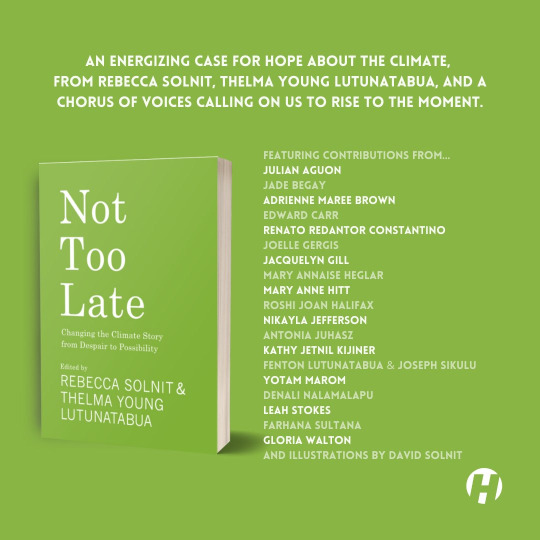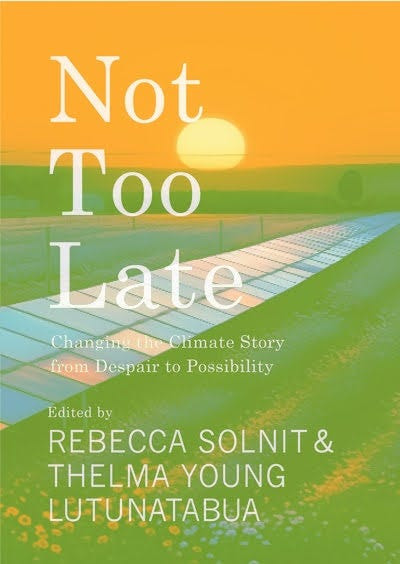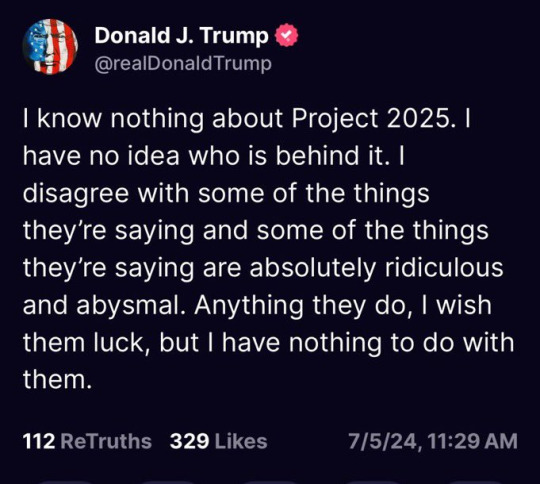#climate book
Explore tagged Tumblr posts
Text
One of the points of Greta Thunberg's book about the Climate, was about female land ownership, and how we need an increase of it. That actually surprised me, not that I didn't think of it before, but because it was presented as one of the solutions.
Greta actually looked at what happens to the land when women reign over it, or when women even just have access to it and are allowed to work on it, and noticed that women almost always, naturally, regenerated the land. Women will go and plant trees on their land immediately, and feed their families with the produce it makes. Women will not even stop at planting trees on their land, they'll go and re-forest the surrounding areas too, sharing secrets of the trees with others who can benefit from the extra free food. Women will plant native species, bushes, flowers, gardens, revitalize the soil, add life to the dirt and the sand, and this is something that is recorded consistently and long term with the female land ownership, land is not only regenerated, but used for immediate benefit of all life on it. That includes humans, animals, bugs, bacteria, plants and the local environment in general.
Greta also points out that most of the land that women are working on, is currently not their own. They're most often lending their hands to the land owned by their husbands, brothers, uncles, relatives or landlords, and these m*n will sometimes decide to undo all that work, and build something environmentally destructive on it in order to make a personal profit.
This is why Greta implores that is important that women own more land, personally and with full power over what happens to it. Women having full control over land is nature's way of regeneration and prevention of climate change. Give land to the women to fight climate change.
3K notes
·
View notes
Text
This Is The Best Book I’ve Ever Read to Empower Anyone with Real Climate Hope

READ MY REVIEW👉 Not Too Late: Changing the Climate Story from Despair to Hope

"To hope is to accept despair as an emotion but not as an analysis. To recognize that what is unlikely is possible, just as what is likely is not inevitable." —Rebecca Solnit

What gives me hope is that human history is full of examples of people across the ages who have risen to face the great challenges of their time and have succeeded. Victory is not the arrival in some promised land; it is the series of imperfect victories along the way that edge us closer to building the critical mass that eventually shifts the status quo.” —Rebecca Solnit
Not Too Late: Changing the Climate Story from Despair to Hope
#climate hope#climate#climate change#climate art#climate optimism#climate action#climate justice#climate book#book review#book recommendations#environment#earth month#book#books#rebecca solnit#renewable energy#renewable power#courage#climate solutions#favorite quotes#quotes#inspiration#inspiring quotes#envrionment#environmental communication#climate communication#favorite books#despair#possibility#climate story
46 notes
·
View notes
Text


benandjerrys on Instagram
#ben and jerrys#ben and jerry's ice cream#election 2024#project 2025#black lives matter#blm movement#hope#hopecore#united states#us politics#donald trump#elon musk#gen z#positivity#happiness#climate justice#climate change#greta thunberg#save palestine#save our planet#sustainability#vegan#vegetarian#liberals#booklr#bookworm#banned books#blacklivesmatter#leftist#leftism
13K notes
·
View notes
Text
Buying copies of banned books is awesome, but I also want to put this out there. If anyone is in college and/or has access to peer reviewed academic journals PLEASE do the following:
Buy USB drives
Download as many articles from academic journals in the coming months as you can about topics under attack, such as gender variance, DEI, critical race theory, racism, reproductive rights, climate change, and so on. Maybe pick one or two journals and topics to focus on per month! (There may be pay walls or limits on how many you can freely download)
Keep them organized on your USB’s by topic or journal
We don’t really know what will happen, what will get erased or censored from the web, but they’re already taking websites down related to DEI and reproductive rights. We need to work together to save the research and literature that we have!
#banned books#us politics#censorship#reproductive rights#queer rights#diversity#diversity equity and inclusion#intersectionality#climate crisis#climate action#trans rights#human rights
3K notes
·
View notes
Text



#Trump#biden#democrats#republicans#politics#climate change#woc#poc#fda#scotus#education#books#medicare#us military#constraception#lbqt#kanala harris#Epa#antarctica#feminism#Obama#youtube
1K notes
·
View notes
Text
I’ve teased it. You’ve waited. I’ve procrastinated. You’ve probably forgotten all about it.
But now, finally, I’m here with my solarpunk resources masterpost!
YouTube Channels:
Andrewism
The Solarpunk Scene
Solarpunk Life
Solarpunk Station
Our Changing Climate
Podcasts:
The Joy Report
How To Save A Planet
Demand Utopia
Solarpunk Presents
Outrage and Optimisim
From What If To What Next
Solarpunk Now
Idealistically
The Extinction Rebellion Podcast
The Landworkers' Radio
Wilder
What Could Possibly Go Right?
Frontiers of Commoning
The War on Cars
The Rewild Podcast
Solacene
Imagining Tomorrow
Books (Fiction):
Ursula K. Le Guin: The Left Hand of Darkness The Dispossessed The Word for World is Forest
Becky Chambers: A Psalm for the Wild-Built A Prayer for the Crown-Shy
Phoebe Wagner: When We Hold Each Other Up
Phoebe Wagner, Bronte Christopher Wieland: Sunvault: Stories of Solarpunk and Eco-Speculation
Brenda J. Pierson: Wings of Renewal: A Solarpunk Dragon Anthology
Gerson Lodi-Ribeiro: Solarpunk: Ecological and Fantastical Stories in a Sustainable World
Justine Norton-Kertson: Bioluminescent: A Lunarpunk Anthology
Sim Kern: The Free People’s Village
Ruthanna Emrys: A Half-Built Garden
Sarina Ulibarri: Glass & Gardens
Books (Non-fiction):
Murray Bookchin: The Ecology of Freedom
George Monbiot: Feral
Miles Olson: Unlearn, Rewild
Mark Shepard: Restoration Agriculture
Kristin Ohlson: The Soil Will Save Us
Rowan Hooper: How To Spend A Trillion Dollars
Anna Lowenhaupt Tsing: The Mushroom At The End of The World
Kimberly Nicholas: Under The Sky We Make
Robin Wall Kimmerer: Braiding Sweetgrass
David Miller: Solved
Ayana Johnson, Katharine Wilkinson: All We Can Save
Jonathan Safran Foer: We Are The Weather
Colin Tudge: Six Steps Back To The Land
Edward Wilson: Half-Earth
Natalie Fee: How To Save The World For Free
Kaden Hogan: Humans of Climate Change
Rebecca Huntley: How To Talk About Climate Change In A Way That Makes A Difference
Christiana Figueres, Tom Rivett-Carnac: The Future We Choose
Jonathon Porritt: Hope In Hell
Paul Hawken: Regeneration
Mark Maslin: How To Save Our Planet
Katherine Hayhoe: Saving Us
Jimmy Dunson: Building Power While The Lights Are Out
Paul Raekstad, Sofa Saio Gradin: Prefigurative Politics
Andreas Malm: How To Blow Up A Pipeline
Phoebe Wagner, Bronte Christopher Wieland: Almanac For The Anthropocene
Chris Turner: How To Be A Climate Optimist
William MacAskill: What We Owe To The Future
Mikaela Loach: It's Not That Radical
Miles Richardson: Reconnection
David Harvey: Spaces of Hope Rebel Cities
Eric Holthaus: The Future Earth
Zahra Biabani: Climate Optimism
David Ehrenfeld: Becoming Good Ancestors
Stephen Gliessman: Agroecology
Chris Carlsson: Nowtopia
Jon Alexander: Citizens
Leah Thomas: The Intersectional Environmentalist
Greta Thunberg: The Climate Book
Jen Bendell, Rupert Read: Deep Adaptation
Seth Godin: The Carbon Almanac
Jane Goodall: The Book of Hope
Vandana Shiva: Agroecology and Regenerative Agriculture
Amitav Ghosh: The Great Derangement
Minouche Shafik: What We Owe To Each Other
Dieter Helm: Net Zero
Chris Goodall: What We Need To Do Now
Aldo Leopold: A Sand County Almanac
Jeffrey Jerome Cohen, Stephanie Foote: The Cambridge Companion To The Environmental Humanities
Bella Lack: The Children of The Anthropocene
Hannah Ritchie: Not The End of The World
Chris Turner: How To Be A Climate Optimist
Kim Stanley Robinson: Ministry For The Future
Fiona Mathews, Tim Kendall: Black Ops & Beaver Bombing
Jeff Goodell: The Water Will Come
Lynne Jones: Sorry For The Inconvenience But This Is An Emergency
Helen Crist: Abundant Earth
Sam Bentley: Good News, Planet Earth!
Timothy Beal: When Time Is Short
Andrew Boyd: I Want A Better Catastrophe
Kristen R. Ghodsee: Everyday Utopia
Elizabeth Cripps: What Climate Justice Means & Why We Should Care
Kylie Flanagan: Climate Resilience
Chris Johnstone, Joanna Macy: Active Hope
Mark Engler: This is an Uprising
Anne Therese Gennari: The Climate Optimist Handbook
Magazines:
Solarpunk Magazine
Positive News
Resurgence & Ecologist
Ethical Consumer
Films (Fiction):
How To Blow Up A Pipeline
The End We Start From
Woman At War
Black Panther
Star Trek
Tomorrowland
Films (Documentary):
2040: How We Can Save The Planet
The People vs Big Oil
Wild Isles
The Boy Who Harnessed The Wind
Generation Green New Deal
Planet Earth III
Video Games:
Terra Nil
Animal Crossing
Gilded Shadows
Anno 2070
Stardew Valley
RPGs:
Solarpunk Futures
Perfect Storm
Advocacy Groups:
A22 Network
Extinction Rebellion
Greenpeace
Friends of The Earth
Green New Deal Rising
Apps:
Ethy
Sojo
BackMarket
Depop
Vinted
Olio
Buy Nothing
Too Good To Go
Websites:
European Co-housing
UK Co-housing
US Co-housing
Brought By Bike (connects you with zero-carbon delivery goods)
ClimateBase (find a sustainable career)
Environmentjob (ditto)
Businesses (🤢):
Ethical Superstore
Hodmedods
Fairtransport/Sail Cargo Alliance
Let me know if you think there’s anything I’ve missed!
#solarpunk#hopepunk#cottagepunk#environmentalism#social justice#community#optimism#bright future#climate justice#tidalpunk#turbinepunk#resources#masterpost#books#films#magazines#podcasts#apps
1K notes
·
View notes
Text

George Steinmetz Journeys Around the World to Illuminate Where Food Comes From
210 notes
·
View notes
Text
i'm kind of late to this but i just finished reading the scholomance trilogy by naomi novik and i feel like it is such an underrated urban fantasy?? taking the chosen one trope and turning it on its head with a fmc who has been prophesied to bring death and destruction, who is imbued with terrible power, but cannot even properly use said power to solve any of her obstacles because it would obliterate them and her soul. it takes a tired trope and the idea of an 'overpowered mary sue' and throws it back in your face by showing how all the power and destiny in the world is useless against a system filled with corruption that has burdened you with an easy way out (evil/destructive magic) that you can't take so now you have to work twice as hard as everyone else just to do simple, constructive spells instead of flicking your wrist and being done with it.
#the scholomance#naomi novik#galadriel higgins#orion lake#bookblr#urban fantasy#a deadly education#the last graduate#ya fantasy#the golden enclave#ya fiction#it has a diverse cast#queerness just effortlessly woven in#and the entire thing is so seamlessly crafted with a narrative on what real change looks like#how to really rid your environment of corruption and change society for the better you have to do the gritty work#you have to be willing to do the unpleasant hard grueling organization and working with people / meeting them where they're at#you might not even get to see or do the pretty parts#but its still worth doing the distatesful shit#doing the compromising and giving space for people to learn and make up for mistakes#so that future generations can do better#and have the childhood u didn't#no spoilers in case by some miracle i convince another soul to read this but like#she legit fucking says it in the book#it's not the work she wants to do in the end. not what she envisioned. but she does what she must to make sure other kids don't suffer#makes me think of climate activism so much#we might not get to have the pretty wonderful utopia but we have to be willing to do the shitty stuff it takes to make that future possible
228 notes
·
View notes
Text
Everyone at @stopproject2025comic knows how hard it is to get people to read anything heavy, so we made a bunch of comics that you can share to get the word out.
Complete alt-text and image description at the site. More comics too. Spread them far and wide because this stuff is important.



219 notes
·
View notes
Text





Benedict Cumberbatch´s year in review ✧ 2024.
"This isn’t a very natural thing, you know what I’m doing right now, talking to all of you, but the person in here, that’s carrying this through to try and communicate to you, is someone who’s tied to people that they’ve known for a long time in their life, tied to family, tied to children, tied to things that keep me grounded. I’m not afraid to tackle darkness or difficulty or the less attractive sides of the human condition as long as I know there is space to take that off and put that on, and if I feel safe doing that, then I’m good.” x
#benedict cumberbatch#benedictcumberbatchedit#2024 review#the book of Clarence#elegifs#the end we start from#Eric#The thing with feathers#The roses#Tokyo comic con 2024#letters live 2024#Wimbledon 2024#marvelcastedit#dailymarvelkings#mcuchallenge#userdiana#userrobin#userelysia#tuserlyn#tuserpolly#red sea international film festival 2024#make my money matter campaign#Koko foundation#Climate week NYC 2024#Etc etc lol#Happy new year everybody!!! 🥂🥂🎆
139 notes
·
View notes
Text
I'm furious too. If you want to figure out what we're facing & what needs to change to face these disasters, read these. Also, wear a mask, and start local!
77 notes
·
View notes
Text
Sauron: [is a decent guy in Valinor, where it is light]
Sauron: [is evil in Angband, where it is dark]
Sauron: [is evil in Forodwaith, where it is dark]
Sauron: [is a decent guy in Numenor, where it is light]
Sauron: [is a decent guy in the Southlands, where it is light]
Sauron: [is a decent guy in Eregion, where it is light]
Sauron: [is evil in Mordor, where it is dark]
Maybe he's evil. Maybe it's seasonal affective disorder and a vitamin d deficiency
#tolkien#incorrect tolkien#lotr trop#sauron#au where galadriel says yes on the raft but insists he fix mordor's climate problem because shes not living in eternal darkness#and what do you know? he's less crabby and dickish when he's getting enough vitamin d#this is crack ik hes evil in numenor in the books
178 notes
·
View notes
Text


strikeforall on Instagram
#keep boycotting#black lives matter#blm movement#leftist#leftism#fuck trump#fuck maga#donald trump#elon musk#us politics#climate change#lgbtq community#lgbt pride#bookworm#booklr#book blog#books and reading#banned books#radical feminist safe#radblr#radical feminism#black panther party#black liberation#black owned#small buisness#sustainability#anticapitalism#socialism#marina diamandis#mans world
93 notes
·
View notes
Text




#News#hollywood#climate change#poems#family guy#democrats#republicans#politics#woc#books#donald trump#Gaza#free palestine#israel#buddhism#Art
499 notes
·
View notes
Text
Solarpunk Sunday Suggestion:
Get a library card
#solarpunk#hopepunk#environmentalism#cottagepunk#social justice#community#optimism#bright future#climate justice#tidalpunk#local amenities#books#library economy#solarpunksundays
1K notes
·
View notes
Text
"It is an odd dichotomy we have set for ourselves, between loving people and loving land. We know that loving a person has agency and power—we know it can change everything. Yet we act as if loving the land is an internal affair that has no energy outside the confines of our head and heart. On the high prairie at Cascade Head another truth is revealed, the active force of love for land is made visible. Here the ritual burning of the headland cemented the people’s connection to salmon, to each other, and to the spirit world, but it also created biodiversity. The ceremonial fires converted forests to fingers of seaside prairie, islands of open habitat in a matrix of fog-dark trees.
Likewise, the First Salmon Ceremony... [and] the feasts of love and gratitude were not just internal emotional expressions but actually aided the upstream passage of the fish by releasing them from predation for a critical time. Laying salmon bones back in the streams returned nutrients to the system. These are ceremonies of practical reverence. The burning beacon is a beautiful poem, but it is a poem written physically, deeply on the land.
People loved the salmon the way fire loves grass and the blaze loves the darkness of the sea.
Today we only write it on postcards (“Terrific view from Cascade Head—wish you were here”) and grocery lists ( “Pick up salmon, 1½ pounds”)."
- Robin Wall Kimmerer, Braiding Sweetgrass: Indigenous Wisdom, Scientific Knowledge and the Teachings of Plants, 2013
#literally crying#quotes#books#bookblr#studyblr#litblr#braiding sweetgrass#robin wall kimmerer#solarpunk#climate change#indigenous#potawatomi#indigenous literature#reading#poetry#hopecore#sustainability#ecology#hopepunk#biodiversity#humanity#eco#fave
180 notes
·
View notes